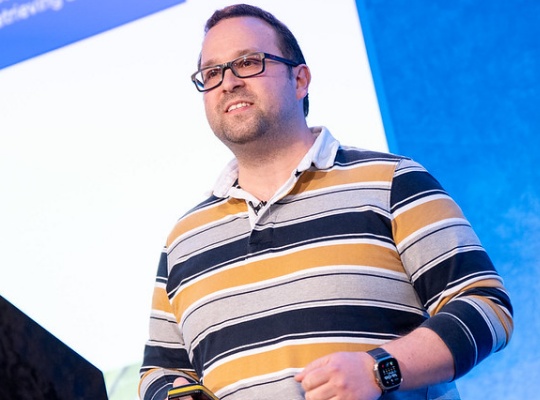Codetown
Codetown ::: a software developer's community
Groovy and Grails biggest problem...
Replies to This Discussion
-
Permalink Reply by Zemian Deng on July 22, 2008 at 11:19am
-
Robert Dempsey said:What I am looking for is performance comparisons of Groovy/Grails with other frameworks combined with Java such as Spring.
Hello Robert, Have you explored Scala programming? It gives you the short and flexibility of Groovy like expressiveness, but yet has good performance as close as to Java itself! Scala is static typed instead of dynamic though. Check out other post I made few days ago under Other JVM Group on this site see if you like it.
-Z -
-
Permalink Reply by Jim Moore on August 27, 2008 at 10:36pm
-
What needs to be performant and why? Things like Twitter are built on a notoriously slow platform (ie, Ruby on Rails) but it's plenty fast enough.
Grails is obviously slower than Spring MVC since it's built on old versions of Spring MVC and Spring WebFlow. Does it matter? For the vast majority of web sites the answer is trivially simple: No.
Scala is faster and slower than Java depending on what you're doing. Groovy is slower than both, but who cares? It's more than fast enough for what it's used for.
If you really need speed, write in assembly code. If you think that's not reasonable, then ask yourself why you're willing to sacrifice that speed to be able to write in Java. Then apply the same reasoning to why you would program in something like Grails.
Note that I'm not saying that you should use Grails, just that looking at performance without solid reasons *why* is well beyond foolish. -
-
Permalink Reply by Jackie Gleason on October 15, 2009 at 5:07pm
-
There are some performance issues (For example I have been told my IDE friendly specific typing can cause issues) that make Scala/Java better for some high volume projects. However, for simplicity and readability groovy is a better way to develop, IMHO
Jackie -
-
Permalink Reply by John Thompson on January 3, 2010 at 8:03am
-
To answer adoption - Grails is becoming more and more mainstream. Sky.com, Wired, and Walmart (specifically mp3.walmart.com) are some notable sites using Grails.
In benchmarking, yes, Grails is slower. But improvements are being made, both to Groovy and Grails itself.
And benchmarks are generally useless in the real world. Every application is different. Bad code, poor database design, poor technology choices, etc are going to have a far greater impact then the language used.
Where performance is an issue, you can always use Java (or Scala). In fact, much of the Grails framework is in Java, not Groovy. It all comes down to using the right tool for the job.
Also - in the age of distributed computing, I need to ask who cares if there is a 20-30% performance penalty. What does it matter if you need to spool up another VM or two in the cloud? -
Notes
Welcome to Codetown!
 Codetown is a social network. It's got blogs, forums, groups, personal pages and more! You might think of Codetown as a funky camper van with lots of compartments for your stuff and a great multimedia system, too! Best of all, Codetown has room for all of your friends.
Codetown is a social network. It's got blogs, forums, groups, personal pages and more! You might think of Codetown as a funky camper van with lots of compartments for your stuff and a great multimedia system, too! Best of all, Codetown has room for all of your friends.
Created by Michael Levin Dec 18, 2008 at 6:56pm. Last updated by Michael Levin May 4, 2018.
Looking for Jobs or Staff?
Check out the Codetown Jobs group.
InfoQ Reading List
MySQL 9.6 Changes Foreign Key Constraints and Cascade Handling

MySQL is changing the way foreign key constraints and cascades are managed. Starting with MySQL 9.6, foreign key validation and cascade actions are handled by the SQL layer rather than the InnoDB storage engine. This will improve change tracking, replication accuracy, and data consistency, making MySQL more reliable for CDC pipelines, mixed-database environments, and analytics workloads.
By Renato LosioVercel Releases React Best Practices Skill with 40+ Performance Rules for AI Agents

Vercel has launched "react-best-practices," an open-source repository featuring 40+ performance optimization rules for React and Next.js apps. Tailored for AI coding agents yet valuable for developers, it categorizes rules based on impact, assisting in enhancing performance, bundle size, and architectural decisions.
By Daniel CurtisKubernetes Introduces Node Readiness Controller to Improve Pod Scheduling Reliability

The Kubernetes project recently announced a new core controller called the Node Readiness Controller, designed to enhance scheduling reliability and cluster health by making the API server’s view of node readiness more accurate.
By Craig RisiPresentation: Platforms for Secure API Connectivity With Architecture as Code

Jim Gough discusses the transition from accidental architect to API program leader, explaining how to manage the complexity of secure API connectivity. He shares the Common Architecture Language Model (CALM), a framework designed to bridge the developer-security gap. By leveraging architecture patterns, engineering leaders can move from six-month review cycles to two-hour automated deployments.
By Jim GoughMicrosoft Open Sources Evals for Agent Interop Starter Kit to Benchmark Enterprise AI Agents

Microsoft's Evals for Agent Interop is an open-source starter kit that enables developers to evaluate AI agents in realistic work scenarios. It features curated scenarios, datasets, and an evaluation harness to assess agent performance across tools like email and calendars.
By Edin Kapić
© 2026 Created by Michael Levin.
Powered by
![]()